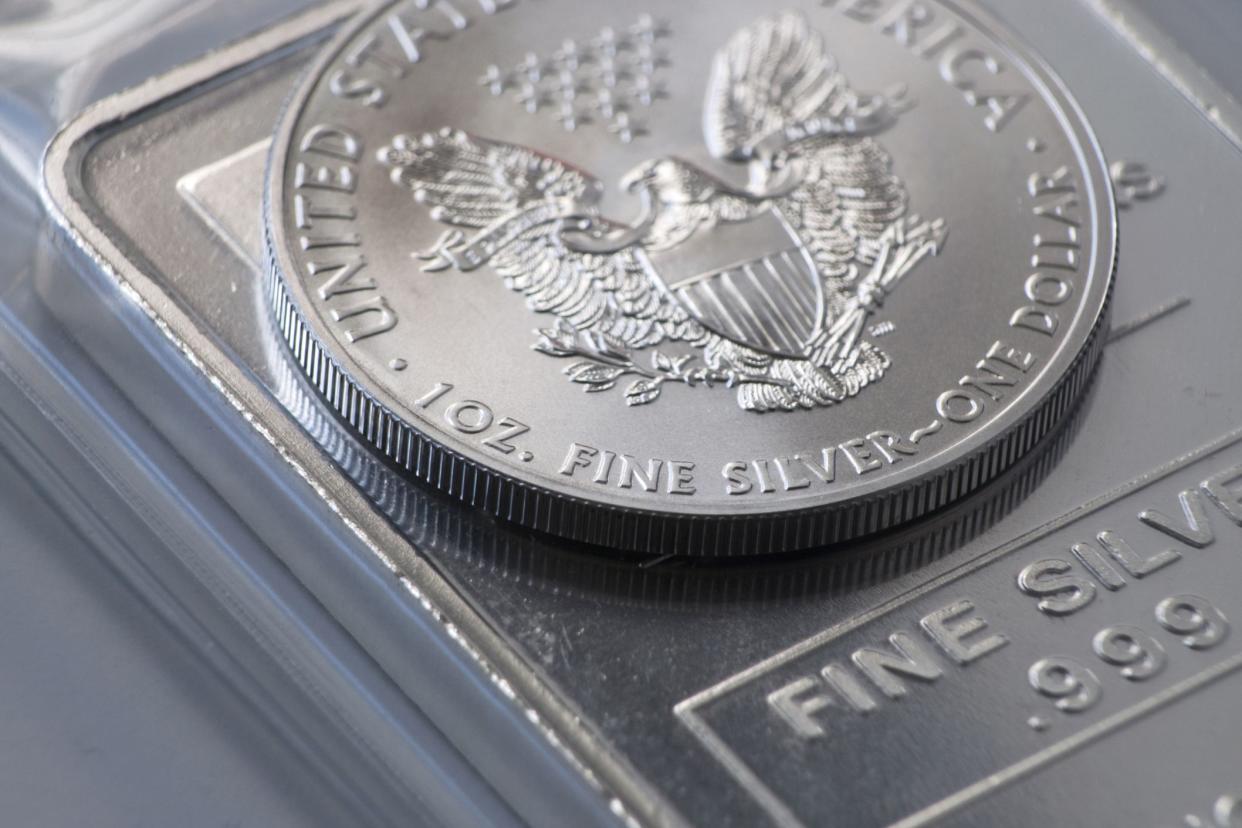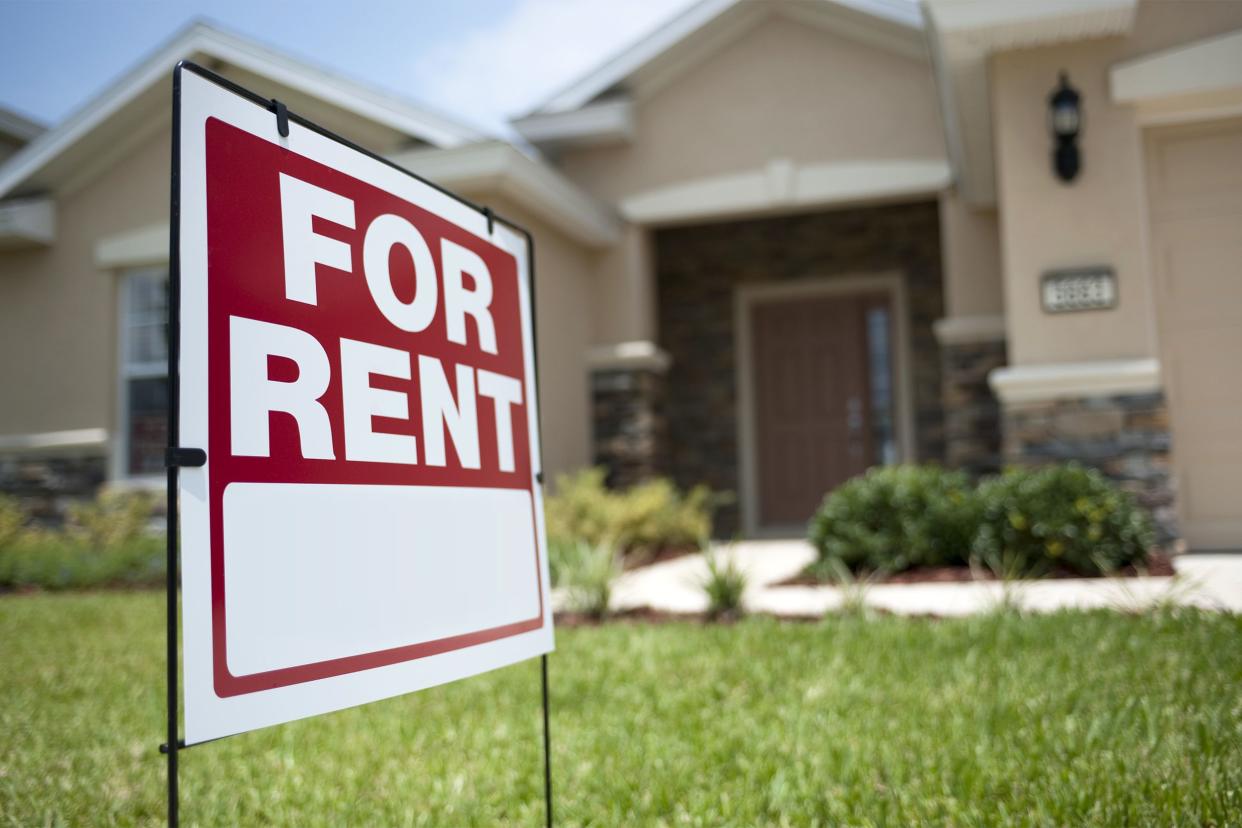18 Ways to Build Wealth During a Recession

While it may seem counterintuitive to some, it’s entirely possible to still build wealth during a recession. In fact, recessions can be one of the best times to maximize your personal wealth, according to experts. How exactly does one do that? To answer that question, we reached out to personal finance experts, entrepreneurs, academics, and business leaders around the country for tips on the best ways to build wealth during a recession. Here’s what they had to say.
Related: 19 Smart Ways to Get Through a Recession

You can often open a certificate of deposit (CD) with as little as $500. And in return, you’ll start receiving interest on your money. But that’s not the only benefit of opening a CD, says Judson Hill, vice president of business development for Bespoke Financial. “The reason I love CDs is because my money is locked up and I cannot touch it without a monetary penalty, so it keeps me from ever touching it,” he explains. “I usually like to put money in six-month CDs and every six months I combine everything that I’ve earned and open a new CD that has a higher interest rate.” Hill recommends using Bankrate to search for CDs with the best interest rate offers. “You can customize the location with your ZIP code, and the site lets you choose deposit amounts and how long you want the CD to be and it lists local banks or credit unions in your area.”
Related: How to Salvage Your Finances During Economic Uncertainty

Technology-driven robo investment advisers like Betterment and Wealthfront offer low cost investment management that automates investment selection and even the periodic portfolio rebalancing process needed to build a solid investment portfolio as a beginner, says Ben Dobler, certified financial planner, financial coach and founder of Ohio-based Stewardship Financial Counsel. “Investing gives you compound returns on your wealth, so that you can double or even triple your savings over time,” says Dobler. “A recession is the best time to start investing because you can buy into the stock market at a discount, and sell later when the economy picks back up again.” If you're not sure where to invest, look for a fee-only, fiduciary financial adviser who will bill you for a short, hourly engagement to help you get started on the right track, says Dobler.
Related: 24 Successful Businesses Launched During Economic Downturns

Short-term stock market decisions are often triggered by emotion, and recessions cause a great deal of emotional decision-making, says Mark Phillips, CEO of Harvested Financial. “When sellers panic … and liquidate, it drops the price of stocks for buyers,” explains Phillips. “For long-term investors, recessions make a great time to add more shares to their holdings. If you're used to buying 10 shares for $100 — a 30 percent stock market decline means you can now buy 14 shares for that same $100.”
For more great personal-finance tips, please sign up for our free newsletters.

Another effective way to build wealth during a recession is to purchase precious metals such as silver, says Scott Johnson, entrepreneur and owner of Pitt Home Buyers in North Carolina. “Silver is cheap relative to gold, and once you own it, no one can take it away from you,” explains Johnson. “Alternatively, if you own a security like a stock, bond or mutual fund and that company goes bust, which happens frequently during recessions, you’re left with nothing.” Johnson suggests researching precious metals dealers carefully before buying and making absolutely sure that you’re buying 0.9999 fine silver bullion rounds or bars that are close to what’s known as the “spot price,” or current price.
Related: Not into Stocks and Bonds? Here are 12 Alternative Investments to Consider

Purchasing gold at the start of a recession is another sure way to grow wealth as a recession deepens, says James Jason, financial analyst and currency trader at MiTrade. “History has shown that when economic downturns occur, most economies and investors turn to gold as the safe haven for preserving their wealth,” says Jason. “Therefore, the precious metal becomes scarce; leading to massive gains in value.” Jason cautions that timing is everything when it comes to purchasing gold. “Only buy gold in the earliest stages of a recession or other global financial crisis,” he continues. “For instance, those of us who know about gold purchased some when COVID-19 was declared a global pandemic. True to our knowledge, the metal is now at its highest price ever.”

Dollar-cost averaging is a long-term investment method that involves investing a fixed amount of money in the same fund or stock at regular intervals such as monthly. “It is an investment approach that lets you buy assets over a specified period of time using a fixed amount of money, which can allow you to purchase more shares when the price is low, and fewer shares when the price is high,” says Mindy Yu, director of investments at the financial technology and services firm Stash. “The dollar amount of money you invest stays the same each month. By taking this approach you participate in different share prices during the various investing cycles. Ultimately, by regularly investing and leveraging dollar cost averaging you can remove any need or knee-jerk reaction to time the market.”

Echoing the sentiments of many other financial advisers, Carlos Cruz, founder of New Jersey-based Britewater Financial Group, says a recession is a good time to start investing because it’s an opportunity to buy at a discount. Yet another way to make the most of this situation is by investing in your company’s 401(k) program, where there’s no minimum amount of money required to get started. “If your company offers a match, it’s very smart to start contributing to your 401(k),” says Cruz. “This will provide an immediate 100 percent return on your money via the employer’s match. As a bonus, your contributions will reduce your taxable income, so at the end of the year you will pay less taxes to the IRS.”

During a recession, service industry workers often suffer the most financially, says Swati Chalumuri, founder of Seattle-based HearMeFolks, an online guide to passive income opportunities. “Having an 8 a.m. to 5 p.m. job means you may be cut off from your income at the slightest disruption of your work life,” explains Chalumuri. But if you develop a passive income stream, you can continue to build wealth, even amid a recession. Your passive streams, says Chalumuri, are unlikely to be impacted by “the physical economy.” Some of the lucrative passive income options Chalumuri suggests include selling stock photographs online, buying stocks, and affiliate advertising. Affiliate advertising, popularly known as affiliate marketing, is the process of earning commissions by promoting services or products of other people's businesses.
Related: 24 Passive Income Ideas to Increase Your Retirement Savings

Most real estate wealth is made during recessions, says John Kilpatrick, managing director of Greenfield Advisors in Seattle. “If I was just starting out, and had a bit to invest, I would look for a small investment property, such as a duplex with good bones but a distressed seller,” explains Kilpatrick. “Networking with realtors who specialize in this area is a great idea. You want something that’s located in a very economically stable neighborhood, good solid blue-collar jobs, such as near a government or university campus … and where most of the fix-up can be accomplished with sweat equity.”
Related: 15 Things You Really Don't Need to Buy During a Recession

With interest rates typically reduced to historic lows, recessions can be a good time to expand your business, says Jason of MiTrade. “Due to low demand for loans from the public during recessions, banks will lower their rates to unimaginable levels,” explains Jason. “Take advantage of this and direct the funds to an investment that will return more than the charge (interest). This will automatically turn into a good source of income.”
Related: 21 Financial Lifelines to Help Small Businesses Stay Afloat

The items you spend money on need to provide a return or save you money elsewhere, suggests Bob Castaneda, program director for Walden University’s Master’s in finance program. “For example, if you purchase a home, you can salt away savings in addition to the real estate appreciation you’ll realize versus renting,” according to Castaneda, who says it’s a good idea to examine what you’ve purchased over the past six months and assess your spending habits and the value of what you’re spending money on.

Turn outdated belongings into cash by selling them online, says Amra Beganovich, CEO and founder of A&E, a digital marketing agency. “Take account of articles around your home or office that are not in use,” says Beganovich. “This can be jewelry, electronic devices, clothing or furniture. Different websites such as eBay, Tradesy or RealReal are great for monetizing your used pieces.”
Related: 14 Secrets for Selling Your Stuff on Craigslist, eBay, and Facebook

Do you have extra space in your home? Consider renting out a room to generate passive income, says Beganovich of A&E. “You can offer a room for rent to earn extra income during the recession,” says Beganovich. “It will help provide an additional revenue stream and reduce the costs associated with utility bills and taxes.”
Related: 21 Tips For Turning Your House Into A Rental Property

An economic downturn can be an ideal opportunity to refinance your mortgage, or other types of debt that you may be paying interest on. Taking this step can cut your costs and spending, says David McHugh, chief marketing officer at Crediful. “In fact, it's been shown that paying off a high interest rate has one of the best returns on your investment, meaning that finding ways to pay off debt or lower interest is one of the best ways to build wealth, especially during a recession,” says McHugh.

To truly build wealth during a recession, you should focus on where you can save money and cut costs, says McHugh of Crediful. “Luckily, a recession offers a lot of options to save a lot of money, and in this way, you can build considerable wealth,” explains McHugh. “For example, many businesses are offering price reductions and discounts and their products and services. Use this time as a consumer to take advantage of these types of deals and save money.”
Related: 13 Long-Term Steps to Reduce Your Living Expenses and Save Money

In order to build wealth, you'll need to manage debt, says Leslie Tayne, a debt attorney and founder of Tayne Law Group. “Having lots of debt will hinder your ability to build wealth and cost you money because you're paying interest fees,” explains Tayne. “Some debts are okay and help you build wealth, such as real estate. If you're struggling with credit card debt or loans, however, have a plan to pay those down faster … It's essential to take into account how devastating compound interest can be when trying to pay down debt and build wealth. If you only pay the minimums each month, your debt could be growing simply because of interest, which turns into more interest. Break the perpetual cycle by paying as much as you can towards high-interest debt each month.”

Perhaps one of the fundamental lessons to remember, even during a recession, is that opportunity comes to those who seek it, says Matthew Dailly, managing director of Tiger Financial. And when opportunities may be more difficult to come by, maintaining relationships with business contacts who can potentially connect you with jobs or other important money-making possibilities, can be more important than ever. “You have to be proactive, rather than reactive in business friendships,” says Dailly. “It’s easy to reconnect with personal friends when you haven’t spoken in a while, but with business it’s different. That time away from other business professionals could allow another person in your niche or business to creep in on your territory so that if or when a business opportunity comes in, who is your ally going to refer them to first? Their new best friend.”

One last way to build wealth over the long term, albeit less straightforward, is to invest in yourself during a recession, says Matt Frankel, a certified financial planner at The Ascent. “If you've lost your job, now could be a smart time to … maybe take a class to gain another credential for your resume, or even consider going back to school to earn a degree,” says Frankel. “I used the 2008-2009 recession as motivation to get my master's degree, and it permanently increased my employability and earning power.”
Related: Short-Term Jobs You Can Still Get During the Coronavirus Pandemic

Like Cheapism's content? Make sure to follow us here.
